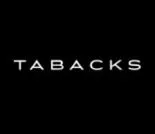Before the introduction of the Protection of Personal Information Act 4 of 2008 ("POPIA"), direct marketing was already regulated under the Electronic Communications and Transactions Act 25 of 2002, the National Credit Act 34 of 2005 and the Consumer Protection Act 68 of 2008 ("CPA"). POPIA serves as one of the measures to protect consumers from direct marketing. The provisions as contained in POPIA make it clear that unsolicited electronic communication as a form of direct marketing is prohibited unless certain provisions of POPIA are complied with. Once POPIA becomes enforceable, consumers will likely receive fewer spam voice messages and fewer spam SMSes as consent needs to be obtained from the consumer before such marketing can be undertaken. There would seem to be some confusion on the application of POPIA on cold calling as a popular means of direct marketing.
Do the prohibitions as contained in POPIA apply to cold calling?
In terms of POPIA, direct marketing is defined as electronic communication directed at data subjects for the direct or indirect purpose of, inter alia, promoting or offering to supply goods or services. The term 'electronic communication' is important and is defined as any text, voice, sound or image message sent over an electronic communications network which is stored in the network or in the recipient's terminal equipment until it is collected by the recipient.. Section 69 of POPIA makes it clear that unsolicited electronic communication including automatic calling machines, facsimile machines, SMS's or e- mail is prohibited unless the data subject, inter alia:
- is an existing customer of the direct marketer;
- is not a customer of the direct marketer but has provided consent to the direct marketing;
- has not previously withheld consent; and
- consent was obtained in the prescribed manner and form.
What this essentially means is that an opt – in approach is followed by POPIA when the data subject is not a customer of the direct marketer (i.e. the data subject must 'opt-in' and agree to receive the direct marketing). This means that consent must be obtained first before electronic communication is sent to the data subject for purposes of direct marketing. An opt- out approach is followed when a data subject is an existing customer of the direct marketer (i.e. the data subject must 'opt-out' if he or she does not want to receive the direct marketing). This means that the data subject can still receive direct marketing until he or she objects/opts-out . This raises the question of whether or not cold calling falls within the ambit of unsolicited electronic communication and if direct marking carried out by way of unsolicited telephone calls (person to person calls) must comply with the provisions of POPIA.
Cold calling is a personal form of communication. It then follows that this form of direct communication is not prohibited by the provisions of POPIA as such communication would not fall within the scope of the definition of electronic communication within POPIA for which the provisions around direct marketing circulate.
Although cold calling is not prohibited by POPIA, companies should note that the CPA still applies to cold calling. In terms of the CPA, direct marketing is defined as a means to approach a person, either in person directly or by mail or electronic communication for the purpose of, inter alia promoting or offering to supply goods or services. Electronic communication as defined in the CPA is communication by means of electronic transmission which includes telephone calls, fax, sms, email or any similar technology or device. Therefore, the CPA makes it clear that telemarketing falls within the ambit of electronic communication and therefore imposes restrictions on cold calling. This means that customers can opt-out from the cold calling and the direct marketing must oblige.
The CPA empowers data subjects to block direct marketing communications and goes even further in section 11 by providing detailed measures that may be taken to limit and prevent direct marketing communications. Under section 11 of the CPA, a person has the right to, inter alia, refuse or accept direct communication and may require another person to discontinue or pre-emptively block any approach or communication to that person. A company who conducts direct marketing communication should ensure that measures are implemented to ensure that consumers demands to preemptively block such communication has been registered on a block registry and should thus not receive any further communication associated with that particular goods or services marketed to the consumer. In addition, the CPA in section 12 limits the contact times which means that companies may not contact consumers for the purposes of direct marketing during a prohibited period as prescribed by the Minister in terms of the regulations. The prohibited period is on Sundays or public holidays; Saturdays before 09h00 and after 13h00; and between the hours of 20h00 and 08h00 the following day.
Although POPIA do not prohibit cold calling, companies and consumers alike should be aware that the CPA does impose prohibitions on telemarketers (cold callers). If you are the recipient of unsolicited telesales / cold calling, you should request the telemarketer to refrain from contacting you again (i.e. opt out), which they would have to comply with in terms of the CPA.
The content of this article is intended to provide a general guide to the subject matter. Specialist advice should be sought about your specific circumstances.
